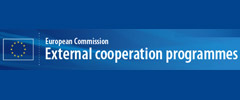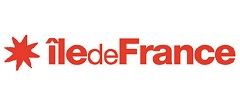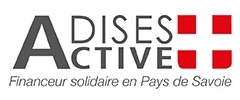"Measuring the Progress in Gender and Environmental Justice"
Event organized at the CSW 59 by WECF, WEDO and the WMG
19.03.2015 |

At the CSW 59, which focuses this year on Beijing plus 20, on 13 March WECF, WEDO and the WMG organised a parallel event on “Measuring the Progress in Gender and Environmental Justice”.
The event reflected on 20 years of women in environmental policy-making and provided insight knowledge and challenges of monitoring targets and setting regional indicators. Key questions were: what has worked well, what has not and why has progress been so slow.
Leisa Perch from the Rio+ - World Center for Sustainable Development set the scene with a keynote highlighting that “gender is more than numbers” and that “participation does not mean influence”. She brought examples from her work in various countries of the global South and made a strong call for a coherent approach in measuring progress in gender equality within sustainable development including the “whole government” as well as the “whole society”.
Janet Macharia, senior gender advisor to UNEP, responded to Leisa Perch’s address by affirming in particular the importance of developing coherent and transparent indicators for the measurement of progress.
The link between the local and the international level was made by Olga Djanaeva from the NGO ALGA in Kyrgyzstan. She reported about the problems women face in rural areas of Kyrgyzstan related to access to water and sanitation and to energy as well as she depicted the impact of climate change on women. Her presentation illustrated the nexus of gender and environment and provided an insight in how complex the issue of setting indicators is according to the different impact levels (local, national, international).
Anke Stock of WECF/WICF gave a short update on the European attempt to set indicators for chapter K, strategic objective 1 (involvement of women in decision-making). The 4 indicators developed 2012 by the European Institute for Gender Equality remain on the level of quantitative measurement and relate not to any policy outcomes. So far, this has been a severely limited approach within EU and UNECE countries.
Afterwards Sascha Gabizon (director of WECF/WICF) noted the importance of experiences gained in monitoring and indicator setting for the completion of the Post2015 process and the set of the 17 goals under discussion. She provided some insights of the on-going debate and highlighted the importance of a sound and coherent gender indicator framework for the 169 targets in order to establish a strong standalone goal on gender and to mainstream gender effectively into other goals.
Concluding, Ute Möhring form the Federal Ministry for Economic Cooperation and Development, Germany, highlighted a few concepts of the German approach towards gender in environment and development. She reported about the cross-sectoral gender policy which is in place, including the explicit empowerment of women and girls, a new Gender Action Plan (2015-18) and a recently developed tool on gender-sensitive impact monitoring. She strongly supported a holistic and rights-based approach with a focus on equality.
A short discussion evolved around the necessity being felt by many participants to endow the new sustainable development framework with measurable goals and targets including an equitable and human rights based indicator framework. The participatory development of such a framework, building on more qualitative indicators became obvious resulting in the understanding that this tasks remains a major challenge.
The parallel event was financially supported, inter alia, by the German Federal Ministry for Economic Cooperation and Development through the Deutsche Gesellschaft für Internationale Zusammenarbeit (GIZ).

































